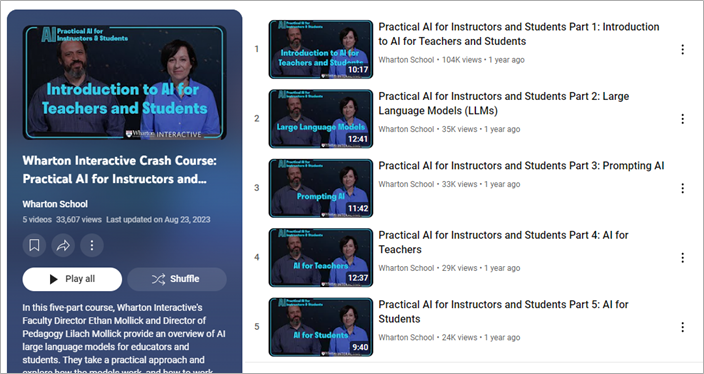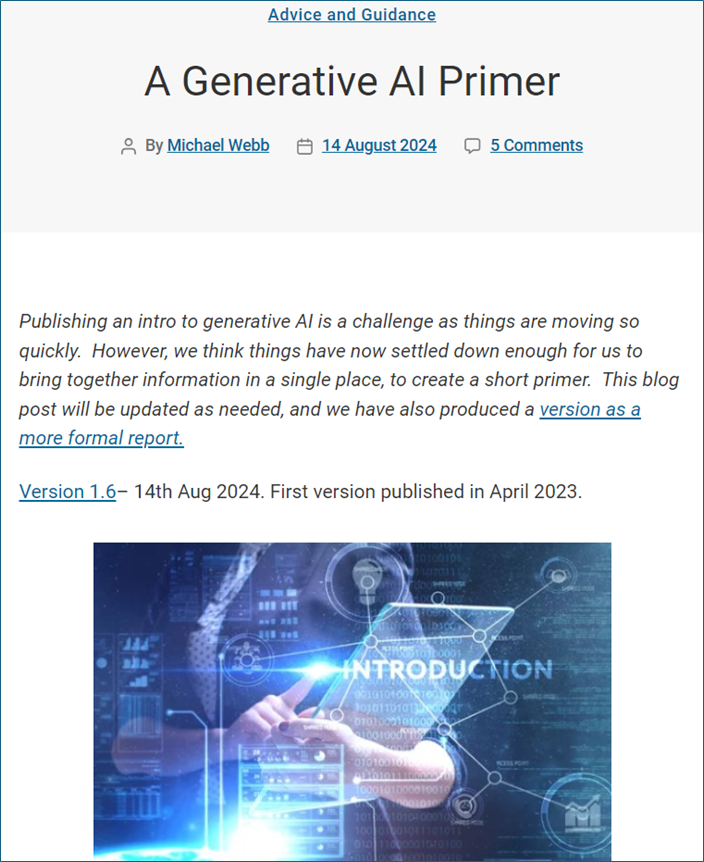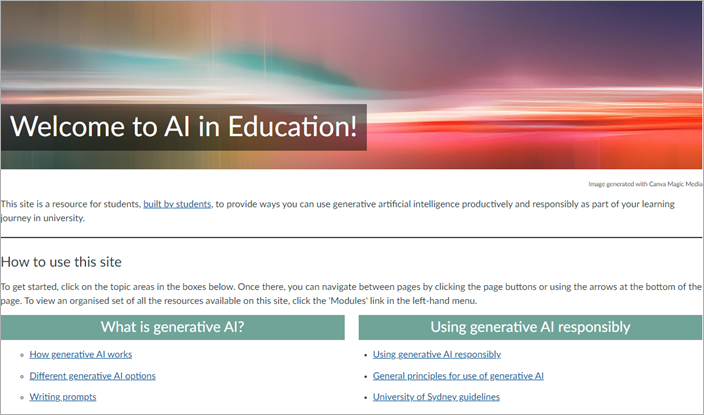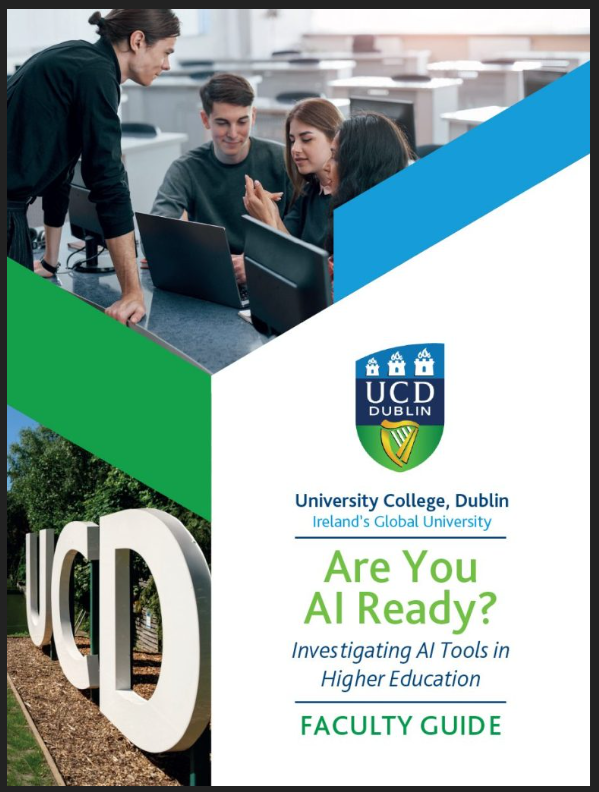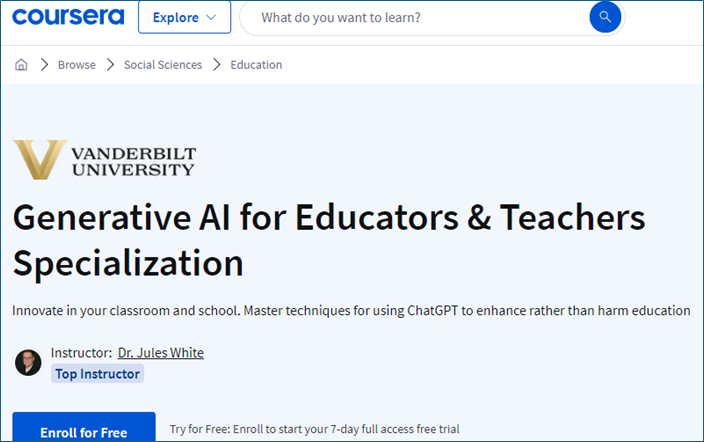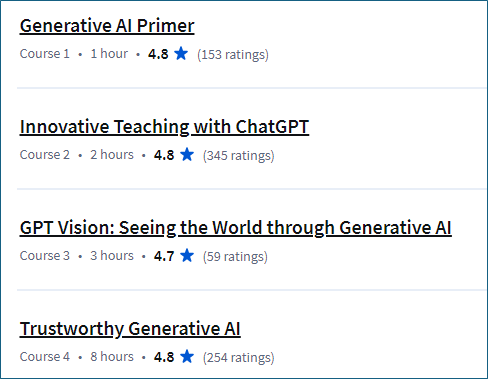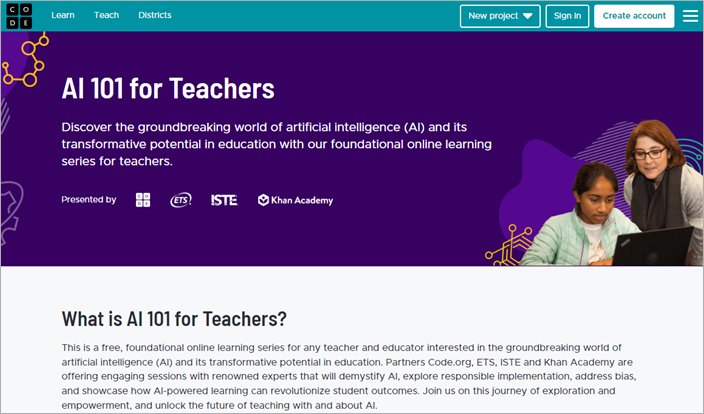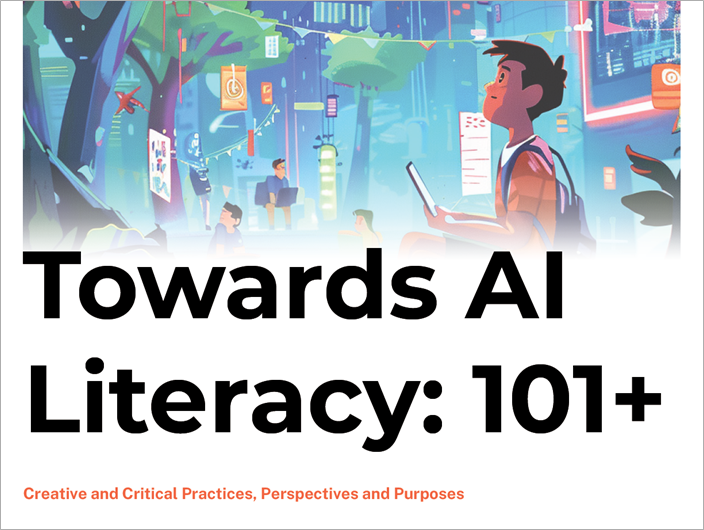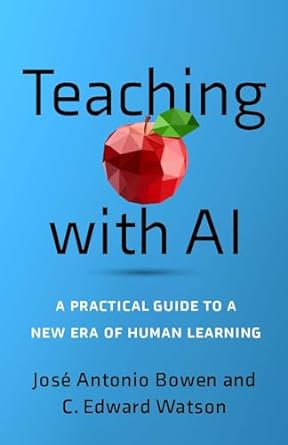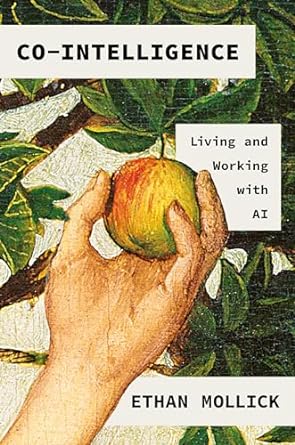Having a good foundation of knowledge and skills is essential for all college employees and students. While NIC develops its own training modules, here are some excellent overviews from other institutions and people to help you get started. They are all free and openly accessible.
Interactive Crash Course: Practical AI for Instructors and Students – Link to PlaylistCredit: Wharton School, University of Pennsylvania Description: In this five-part course, Wharton School Interactive’s Faculty Director Ethan Mollick and Director of Pedagogy Lilach Mollick provide an overview of AI large language models for educators and students. They take a practical approach and explore how the models work, and how to work effectively with each model, weaving in your own expertise. They also show how to use AI to make teaching easier and more effective, with example prompts and guidelines, as well as how students can use AI to improve their learning.
|
A Generative AI Primer – LinkCredit: JISC – a UK research leader in education and technology Description: A frequently updated single webpage of the essential details about GenAI
|
AI in Education – LINKCredit: The University of Sydney, Australia Description: Open/Free Course for Students and Faculty via Canvas Platform A resource built by students for students about how to use GenAI responsibly in post-secondary education. Take it yourself and then share with your students!
|
Are you AI Ready? Investigating AI Tools in Higher Education – Faculty Guide – LinkCredit: University College Dublin, Ireland Description: An open “pressbooks” guide for higher education instructors. An interdisciplinary project team, comprising faculty, staff, and students from two Colleges in University College Dublin (UCD), came together in April 2023 to collaboratively work on a SATLE funded project with the following aims:
|
Coursera Courses on Generative AI – LINKCredit: Coursera Description: A number of courses led by Dr. Jules White, Professor, Vanderbilt University on generative AI. He has some of the most popular/highly registered courses with Coursera on teaching and learning. You can sign up for free and take a course if within the 7-day free trial period. You need to create an account. Suggestion: Generative AI for Educators and Teachers Specialization (Vanderbilt University) – which includes four courses (Generative AI Primer, Innovative Teaching with ChatGPT, GPT Vision: Seeing the World through Generative AI, Trustworthy Generative AI)
|
AI 101 for Teachers – LinkCredit: Partners Code.org, ETS, ISTE and Khan Academy are offering engaging sessions with renowned experts that will demystify AI, explore responsible implementation, address bias, and showcase how AI-powered learning can revolutionize student outcomes. Description: This is a free, foundational online learning series for any teacher and educator interested in the groundbreaking world of artificial intelligence (AI) and its transformative potential in education.
|
Towards AI Literacy: 101+ Creative and Critical Practices, Perspectives and Purposes – PDF VersionCredit: Abegglen, S., Nerantzi, C., Martínez-Arboleda, A., Karatsiori, M., Atenas, J., & Rowell, C. (Eds.) (2024). Towards AI Literacy: 101+ Creative and Critical Practices, Perspectives and Purposes. #creativeHE. https://doi.org/10.5281/zenodo.11613520 Description: PDF document
|
BooksTeaching with AI – A Practical Guide to a New Era of Human Learning by Jose Antonio Bowen and C. Edward Watson (April 2024)
Co-Intelligence: Living and Working with AI by Ethan Mollick (April 2024)
|

